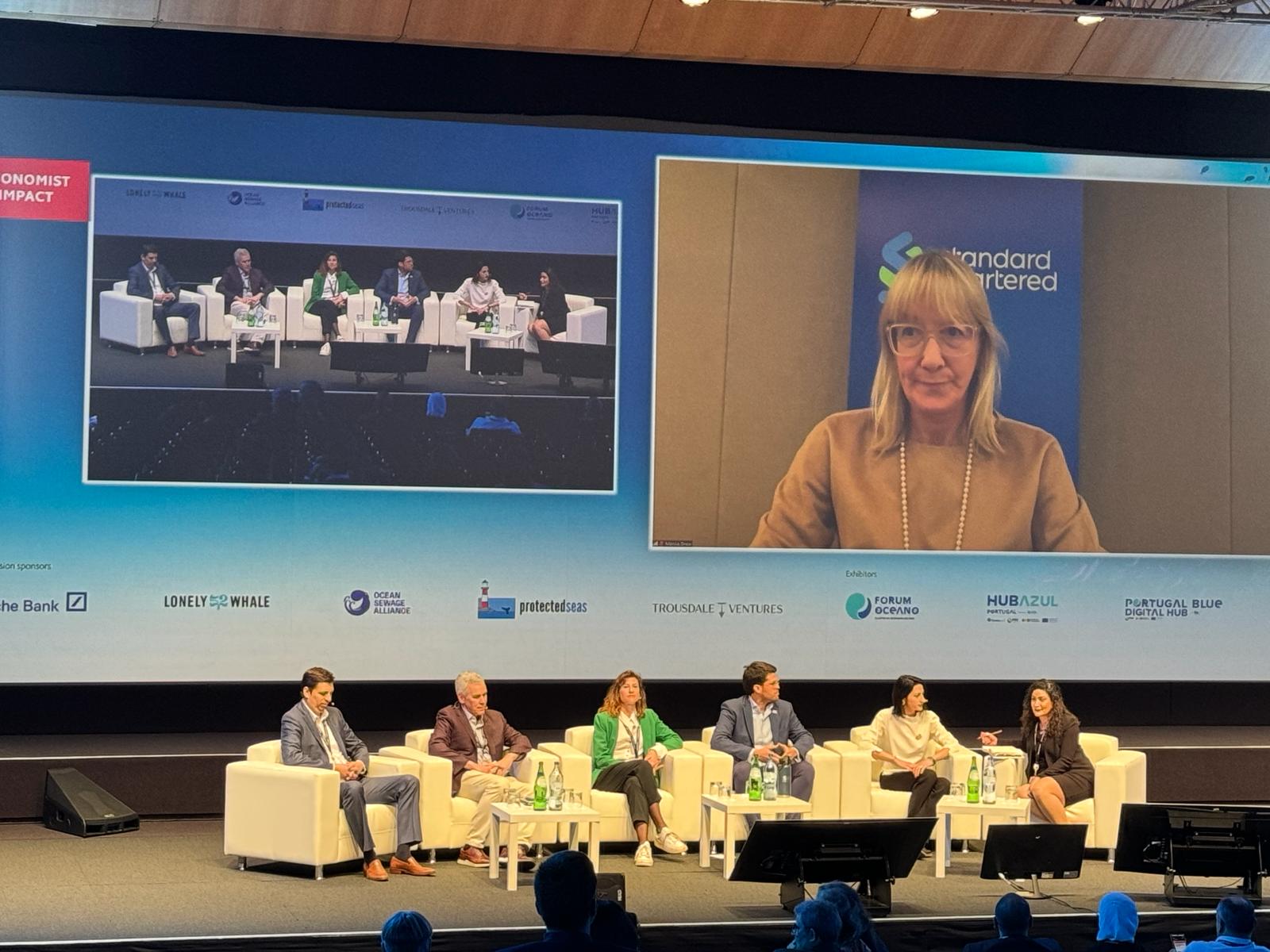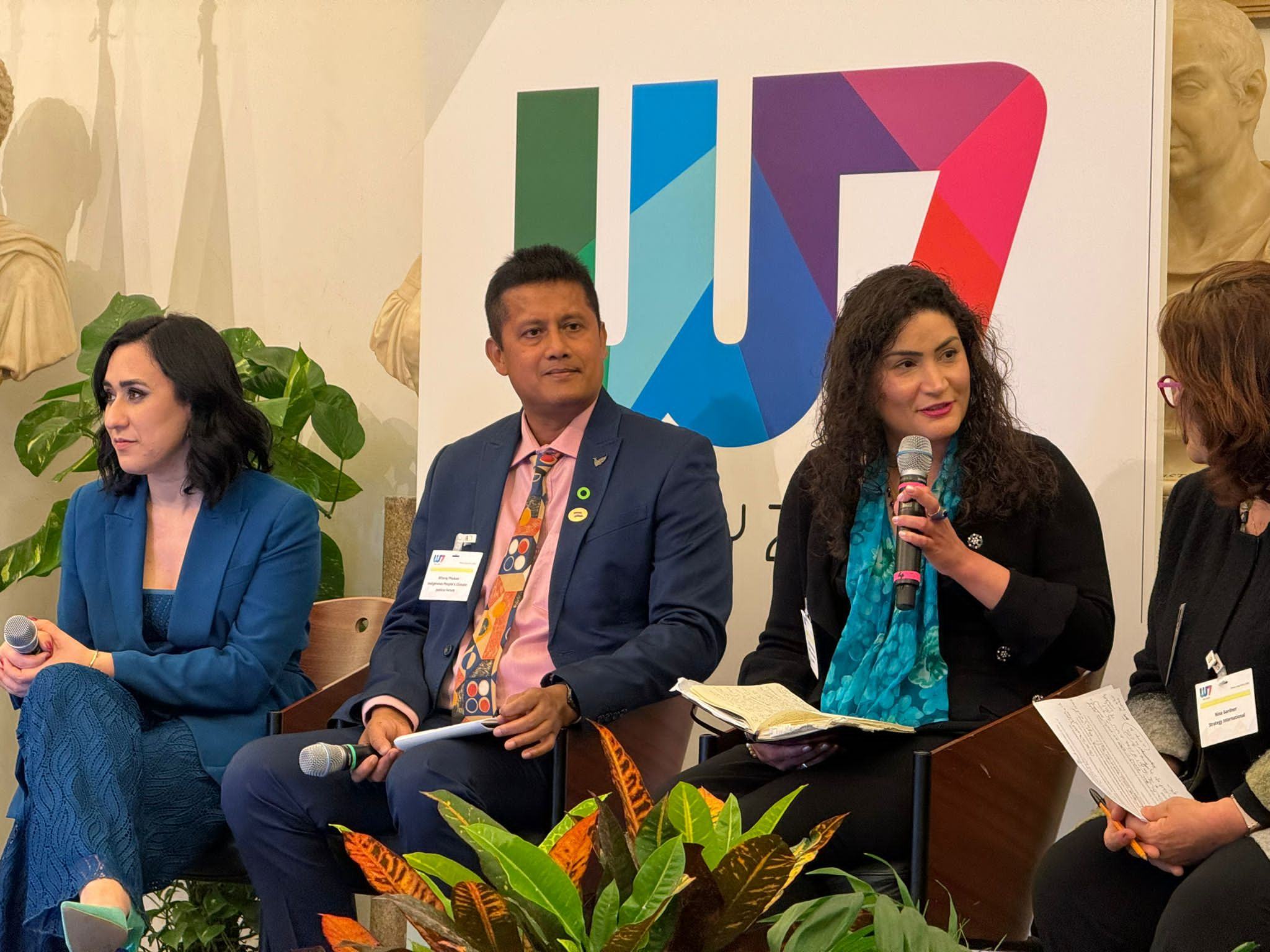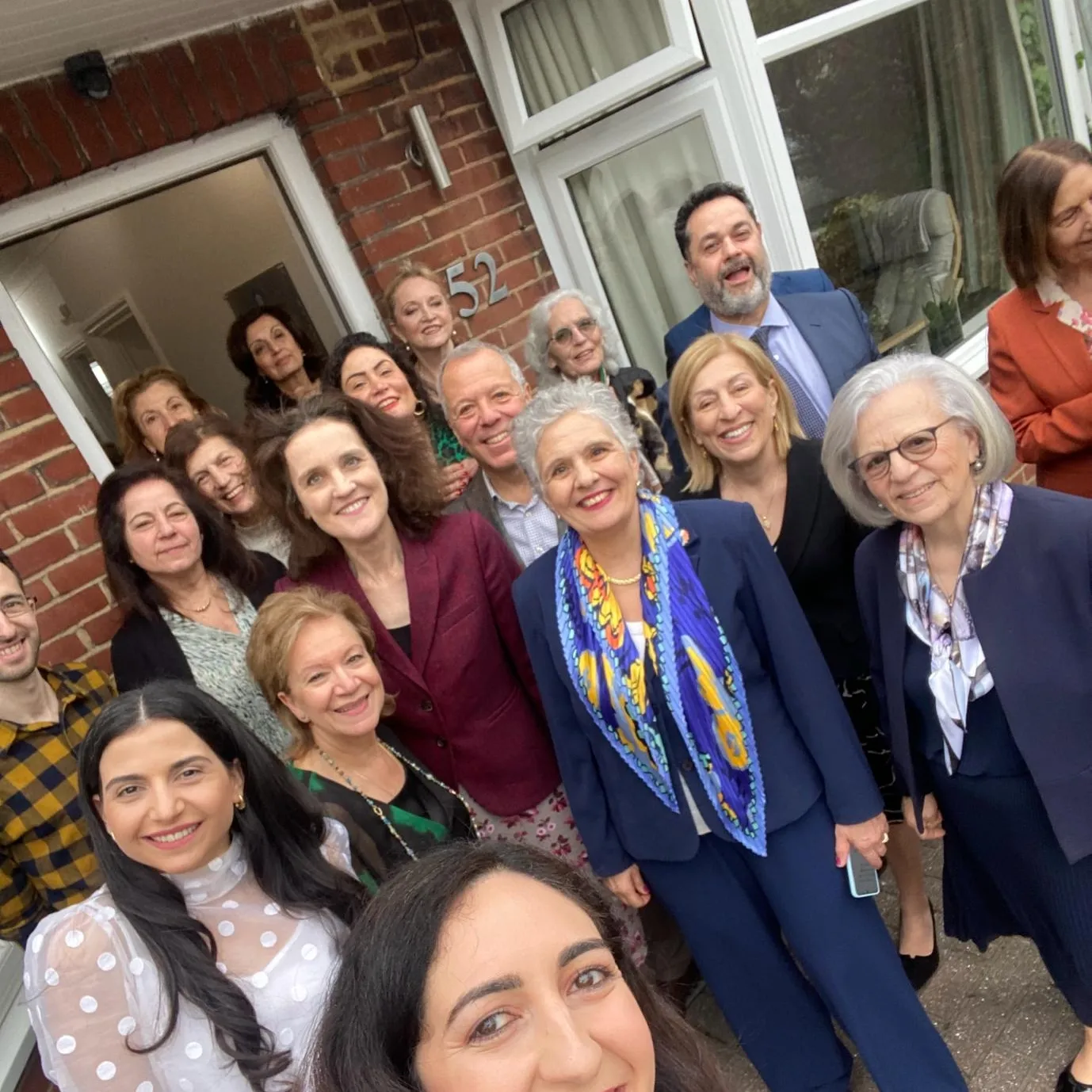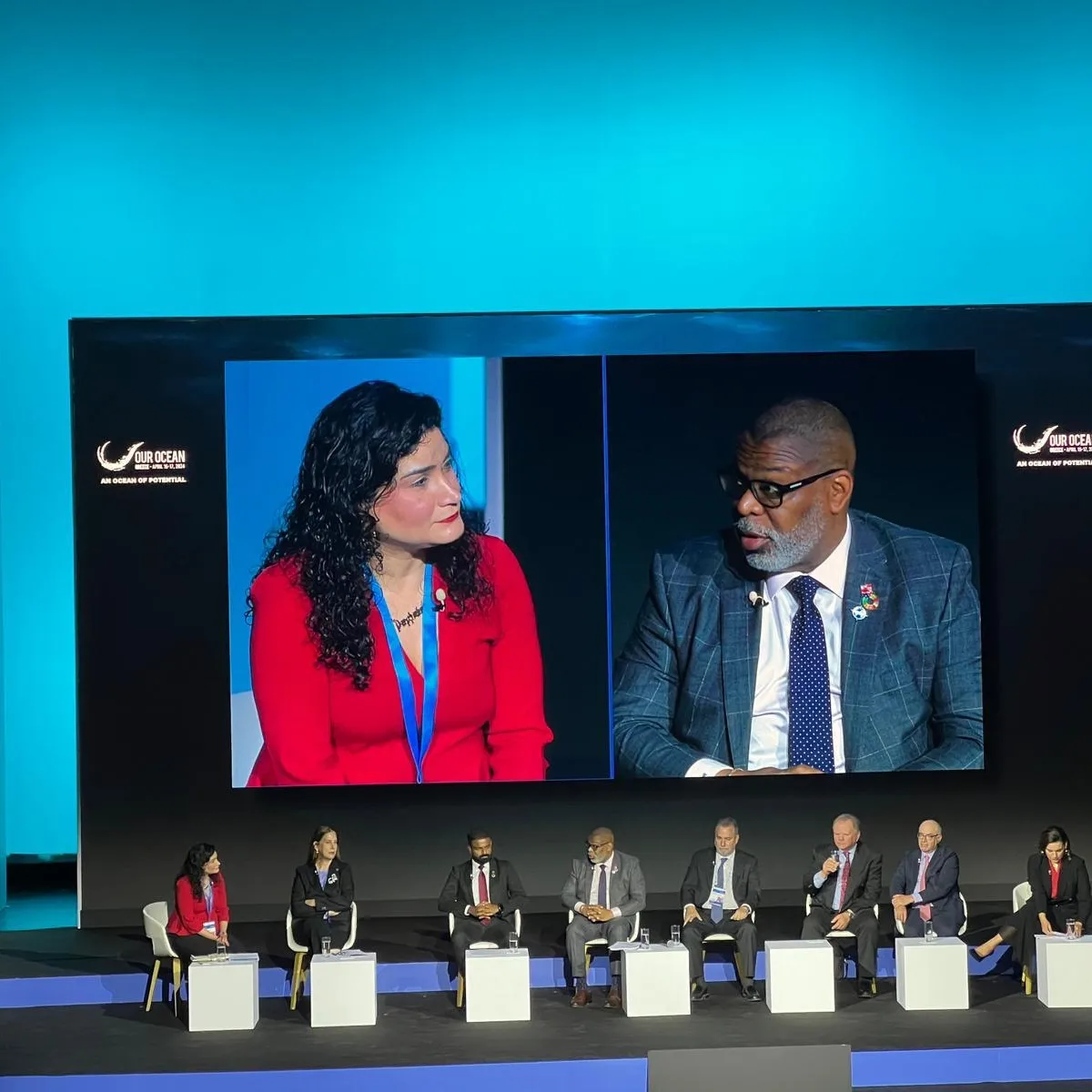Tatiana Der Avedissian is a name you might not yet know, but you certainly should.
Tatiana is making waves – literally and figuratively—in the world of sustainability and business development. As the head of business development for Economist Impact’s World Ocean Initiative, Tatiana is at the forefront of protecting our oceans. Her role on The Economist Group’s sustainability steering committee places her at the heart of strategies aimed at creating a greener future for all of us.
But Tatiana’s impact isn’t confined to the corporate world. She’s deeply involved in causes close to her heart. As co-president of Alkionides UK, she helps provide support to Cypriots in need. Over at the Armenian Institute, where she chairs the board of trustees, Tatiana works tirelessly to preserve and promote Armenian culture in the UK. Her passion for her heritage doesn’t stop there—she also co-founded The Armenia Project, a vital initiative dedicated to fostering economic growth and cultural preservation in Armenia.
Tatiana’s dedication to positive change is also evident in her role as co-president of the Harvard Kennedy School Women’s Alumni Network. Here, she champions women’s leadership and advocates for gender equality. And let’s not forget her role on the board of the UK-Cyprus Enterprise Council, where she helps build business and cultural bridges between the UK and Cyprus.
Recently, Tatiana’s efforts were recognised on a global scale. She was appointed adviser and climate justice coordinator for the 2024 W7 summit in Italy. This role within the G7’s women’s rights and gender equality engagement group highlights her commitment to addressing climate justice and advocating for equity on a worldwide stage.
In every role she takes on, Tatiana Der Avedissian blends sharp business acumen with a deep sense of social responsibility. Her journey is a testament to the impact one person can have in making the world a better place. Whether she’s navigating the complexities of corporate sustainability or championing cultural and social causes, Tatiana is a true leader and an inspiration to us all.
For those seeking a story of dedication, leadership, and positive change, Tatiana’s life is a compelling narrative that shows how one person’s efforts can shape a brighter future for us all.
By Tatiana Der Avedissian:
Growing up in a culturally diverse household where education, creativity and debate was promoted has influenced my worldview and how I live my life. From a young age, I was “gently” encouraged to volunteer for fundraising with local charities and being constantly reminded to be thankful for what I have. As a teenager, you don’t necessarily appreciate how this will shape your life – but now I certainly do.
A former colleague once told me that I couldn’t work without purpose, so it comes as no surprise that I ended up working as head of business development for Economist Impact’s World Ocean Initiative (WOI). One of the key initiatives launched by The Economist Group, it is a mission-driven project that supports the transition to a sustainable ocean economy also known as the blue economy. The World Bank defines this as ”the sustainable use of ocean resources for economic growth, improved livelihoods and jobs, and ocean ecosystem health.”

At WOI we leverage the capabilities of the group to help raise awareness about the challenges facing our ocean: climate change, biodiversity loss and pollution, and help solve them through storytelling, news insights, research and events. We convene decision-makers across the ocean space, including policymakers and business leaders, to turn ideas into action at our annual World Ocean Summit. As a media organisation, we have an important role to play to educate and inform our audience and thus, in turn, inspire action.
Key to this is developing partnerships with organisations that support this goal. That might succeed, because we are all more conscious of our negative impact on the planet. Indeed, The Economist Group acknowledges its own duty to reduce its greenhouse gas (GHG) emissions by at least 25 per cent by 2025.
Since my early school years, I was drawn to history, literature, economics and politics, further driving my conviction to contribute to a better world. But if I sound like an idealist, I am a pragmatic idealist. This side of me probably derives from my family’s history.
My grandmother survived the Armenian Genocide of 1915 and although I never met her, the injustice of that era lives with me; today we know this phenomenon and call it intergenerational trauma. My father’s family eventually settled in Cyprus where he was born, and they lived through the 1974 Turkish invasion of the island. My mother’s side of the family are Russian Armenians who settled in Iran after the Russian Revolution, and she in turn settled in the UK while on holiday after the Iranian Revolution broke out.
My father left Cyprus to study in the UK at the age of 18 and then lived for many years in Singapore and Malaysia before returning to the UK where he met my mother. A few years later we settled in Cyprus because of my father’s work where I was raised. Once again, the injustice suffered by all Cypriots weighed heavy on my mind. This history – Armenia, Iran, Cyprus – it makes you understand how a moment in history can upend lives overnight. I suppose this injustice is what drives me. The world is not fair, but we must try to make a difference.

Earlier in my career, when I was at the Guardian News & Media, we developed important projects with partners to address some of these challenges under the umbrella of the Development 2030 project following the adoption by the United Nations of the Sustainable Development Goals. We aimed to engage with key decision-makers developing the goals, holding all the stakeholders to account, tracking progress and helping tell these important stories to a global audience on topics such as women and girls, water and sanitation, energy needs, financial inclusion and more.
Outside of work, I volunteer for various non-profits. I’m a strong believer in community-driven projects as this is where you can see change, not just the abstract idea of it. Alkionides UK is one of the first charities I got involved with and it’s safe to assume I am committed for the long haul. Established by the inspirational Marie Nicholsby, we support disadvantaged Cypriot patients who are undergoing medical treatment in UK hospitals for illnesses that cannot be treated in Cyprus. We provide free accommodation, transportation and sometimes financial support to the patients and their families. We have helped over 500 families since 2008. We work closely with the Cypriot government which usually covers the medical costs.
Likewise, the Armenian Institute (AI), another charity I am on the board of, is a leading British Armenian charity that aims to make Armenian culture and history a living experience through innovative programmes, educational resources, workshops, lectures, exhibits, and performances. AI was established in 2001 by a diverse group of Armenians from the diaspora who shared one vision, fostering dialogue and connections between the UK and Armenia, the worldwide Armenian diaspora, and the cultures of its wider historical neighbours.
I recently co-founded The Armenia Project, a new educational non-profit based in Yerevan which is bridging the communications gap between Armenia and the international community. Although these projects are larger in scope and more global, at the heart of it, we are still supporting communities.
I am also co-chair of the Harvard Kennedy School Women’s Alumni Network (HKSWAN)—and through that was appointed an adviser and climate-justice co-ordinator for the 2024 meeting of the “W7,” a women’s rights and gender equality engagement group within the G7, in Italy. Through such efforts, I’m trying to help highlight the importance of addressing gender inequality in ways that are not obvious for example, it is not widely known that the negative impacts of climate change disproportionately affect women.

Then there is tech: the fact that women are badly underrepresented in engineering means that the tech behind AI is mainly built by men and this impacts machine learning – which will impact everything. This is analogous to the problems created by the fact that it wasn’t until the late twentieth century that we started conducting medical clinical trials on women, leading to needless ignorance about the bodies of half the population —including me!
I hope in my small way I can create change and perhaps inspire others so we can create a ripple effect for larger change. Such things cannot happen overnight but through incremental steps. The challenge is staying focused. How to balance this with my personal life? I find that surrounding yourself with people who share similar values is an excellent way to stay motivated.
We may not realise it, but just as many drops make an ocean, so are we each individually responsible for solving global challenges – no less than governments and businesses, despite the different scales.







Click here to change your cookie preferences